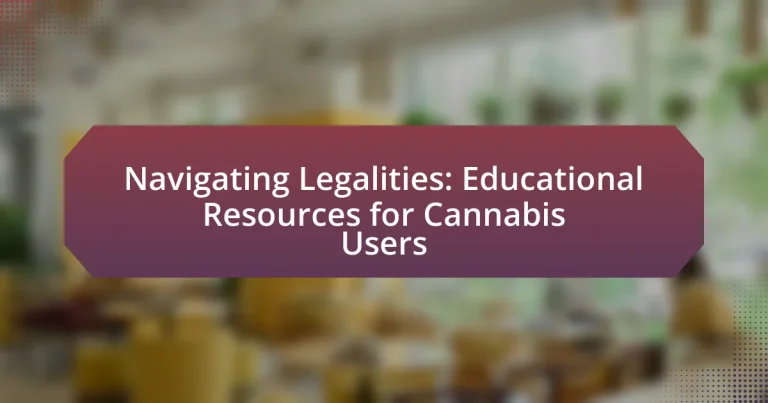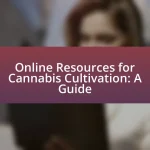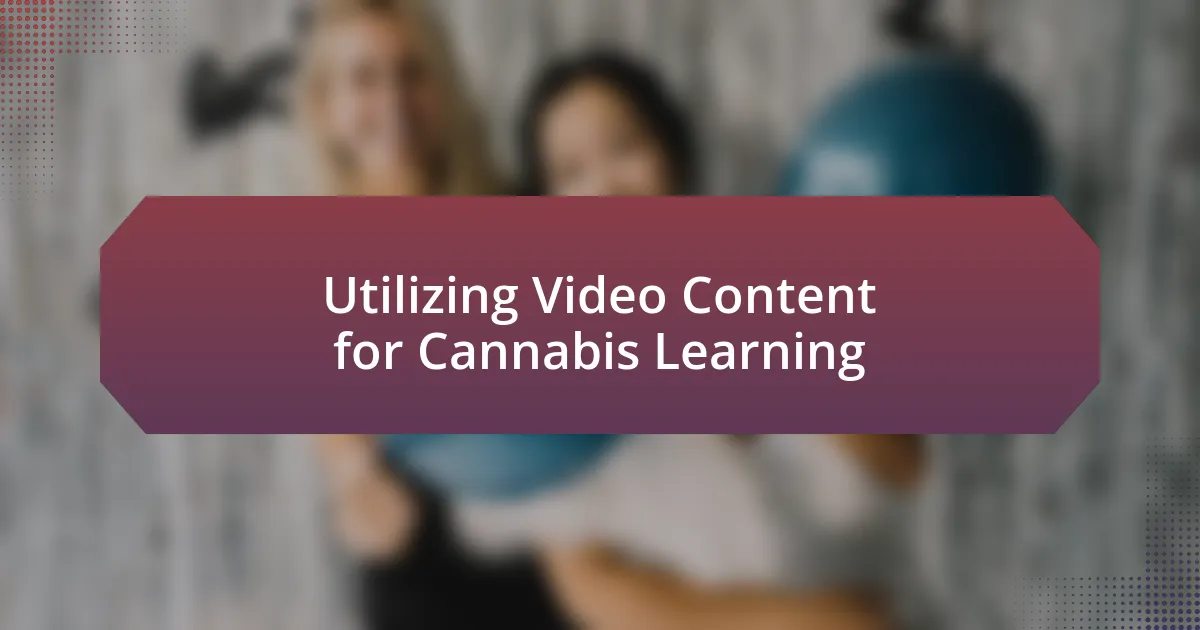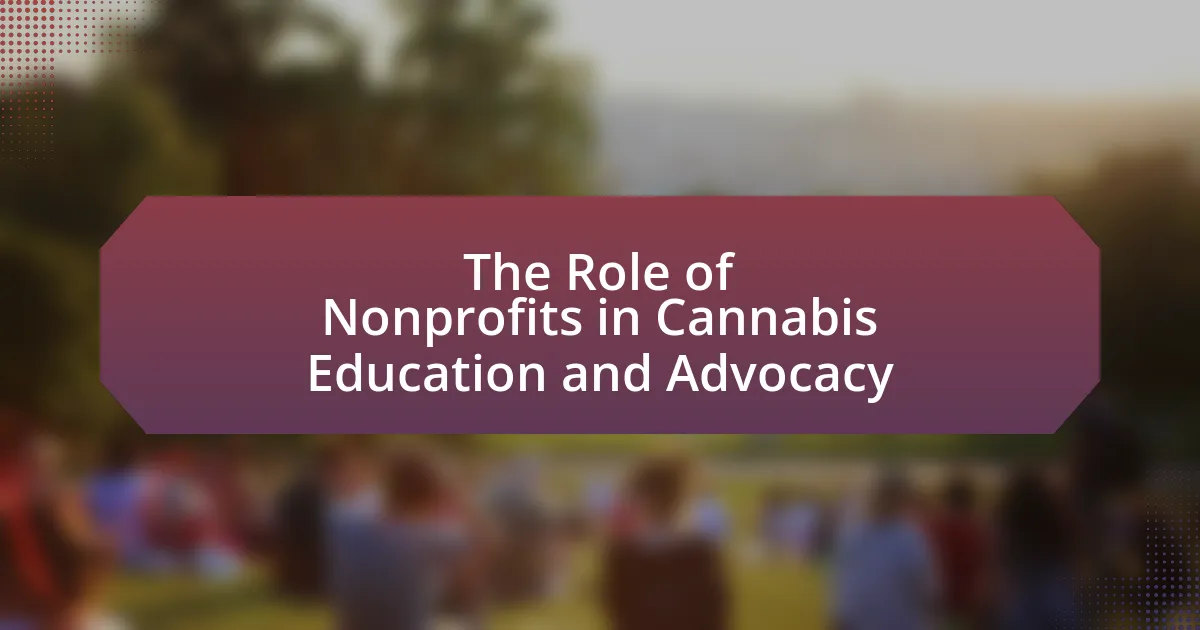The article focuses on the legal considerations for cannabis users, highlighting the complexities of cannabis laws that vary by jurisdiction. It outlines the differences in legality across regions, the factors influencing cannabis regulations, and the impact of federal laws on state policies. Additionally, the article discusses potential legal consequences of cannabis use, penalties for possession, and ways users can protect themselves legally. It also provides information on educational resources available for cannabis users, including online platforms, community organizations, and legal professionals, emphasizing the importance of staying informed about changing laws and best practices for compliance.
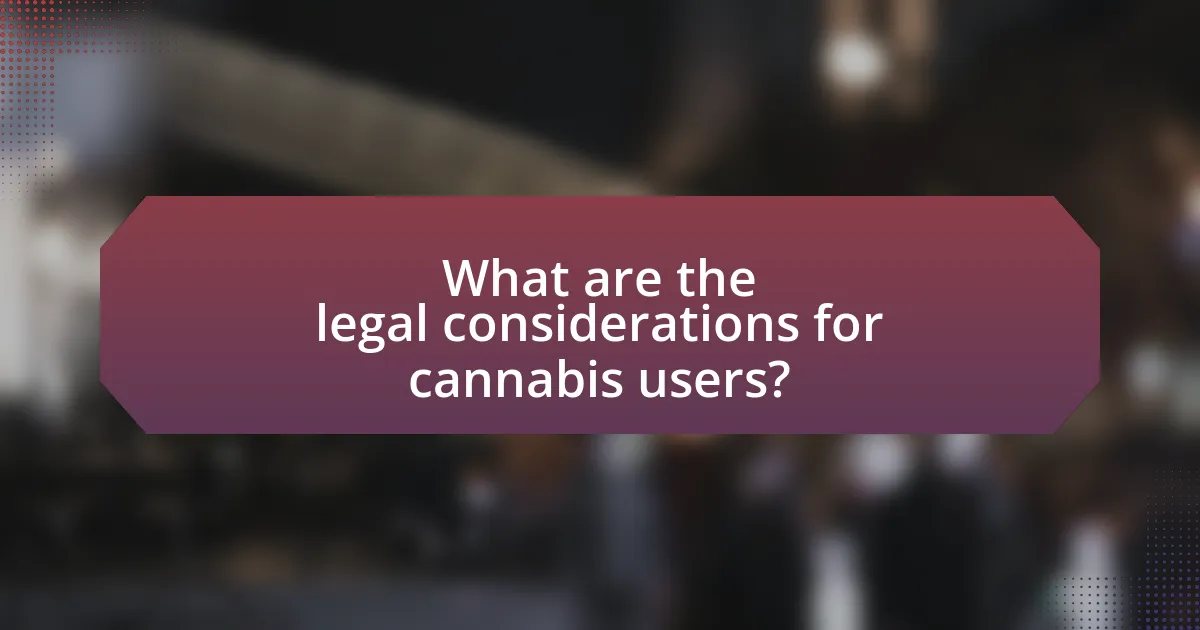
What are the legal considerations for cannabis users?
Cannabis users must navigate a complex legal landscape that varies significantly by jurisdiction. In the United States, for instance, cannabis is legal for recreational use in 23 states and for medical use in 38 states, but it remains illegal federally under the Controlled Substances Act. Users should be aware of state-specific regulations regarding possession limits, cultivation rights, and consumption locations, as violations can lead to criminal charges. Additionally, cannabis users should consider employment policies, as many employers maintain the right to enforce drug-free workplace policies, which may include testing for cannabis use. Understanding these legal frameworks is crucial for responsible cannabis use and avoiding legal repercussions.
How do cannabis laws vary by region?
Cannabis laws vary significantly by region, with some areas legalizing recreational use, others permitting only medical use, and some maintaining strict prohibition. For instance, in the United States, states like California and Colorado have legalized recreational cannabis, while states such as Texas and Idaho enforce strict prohibitions. Internationally, countries like Canada have fully legalized cannabis, whereas nations like Japan impose severe penalties for possession. These variations are influenced by cultural attitudes, historical context, and political factors, leading to a complex legal landscape that cannabis users must navigate.
What factors influence cannabis legality in different states?
Cannabis legality in different states is influenced by a combination of legislative frameworks, public opinion, and economic factors. Legislative frameworks include state laws that dictate whether cannabis is legal for medical or recreational use, with some states having fully legalized it while others maintain strict prohibitions. Public opinion plays a significant role, as states with higher support for legalization tend to enact more progressive cannabis laws; for instance, surveys indicate that states like California and Colorado have seen substantial public backing for legalization efforts. Economic factors, such as potential tax revenue from cannabis sales, also drive legalization; states like Illinois have reported millions in tax revenue since legalization, showcasing the financial incentives that can influence legislative decisions.
How do federal laws impact state cannabis regulations?
Federal laws significantly impact state cannabis regulations by establishing a legal framework that can override state laws. The Controlled Substances Act classifies cannabis as a Schedule I substance, which creates a conflict for states that have legalized cannabis for medical or recreational use. This federal classification means that, despite state laws permitting cannabis use, federal authorities can enforce prohibition, leading to potential legal risks for individuals and businesses operating in compliance with state laws. For instance, federal enforcement actions have occurred in states with legal cannabis markets, demonstrating the tension between state and federal regulations.
What are the potential legal consequences of cannabis use?
The potential legal consequences of cannabis use include criminal charges, fines, and imprisonment, depending on the jurisdiction and the amount of cannabis involved. In many regions, possession of cannabis can lead to misdemeanor or felony charges, which may result in penalties such as incarceration or significant fines. For instance, in the United States, federal law classifies cannabis as a Schedule I substance, leading to severe penalties for possession, distribution, or cultivation. Additionally, even in states where cannabis is legalized, violations of state regulations, such as exceeding possession limits or using cannabis in prohibited areas, can result in legal repercussions.
What penalties exist for cannabis possession and use?
Penalties for cannabis possession and use vary significantly by jurisdiction. In many places, possession of small amounts may result in fines or warnings, while larger quantities can lead to criminal charges, including imprisonment. For example, in the United States, federal law classifies cannabis as a Schedule I substance, which can result in penalties of up to one year in prison for possession. However, many states have decriminalized or legalized cannabis, leading to reduced penalties or no penalties at all for personal use. In contrast, countries like Singapore impose severe penalties, including long prison sentences and hefty fines for possession. These variations highlight the importance of understanding local laws regarding cannabis use and possession.
How can cannabis users protect themselves legally?
Cannabis users can protect themselves legally by understanding and adhering to the specific laws and regulations governing cannabis use in their jurisdiction. This includes knowing the legal limits for possession, the locations where consumption is permitted, and the requirements for purchasing cannabis from licensed dispensaries. For instance, in states where cannabis is legal, users must comply with regulations such as age restrictions and limits on the amount they can possess, which can vary significantly. Additionally, users should keep abreast of any changes in legislation, as cannabis laws are subject to frequent updates. By staying informed and compliant, cannabis users can minimize their risk of legal issues.
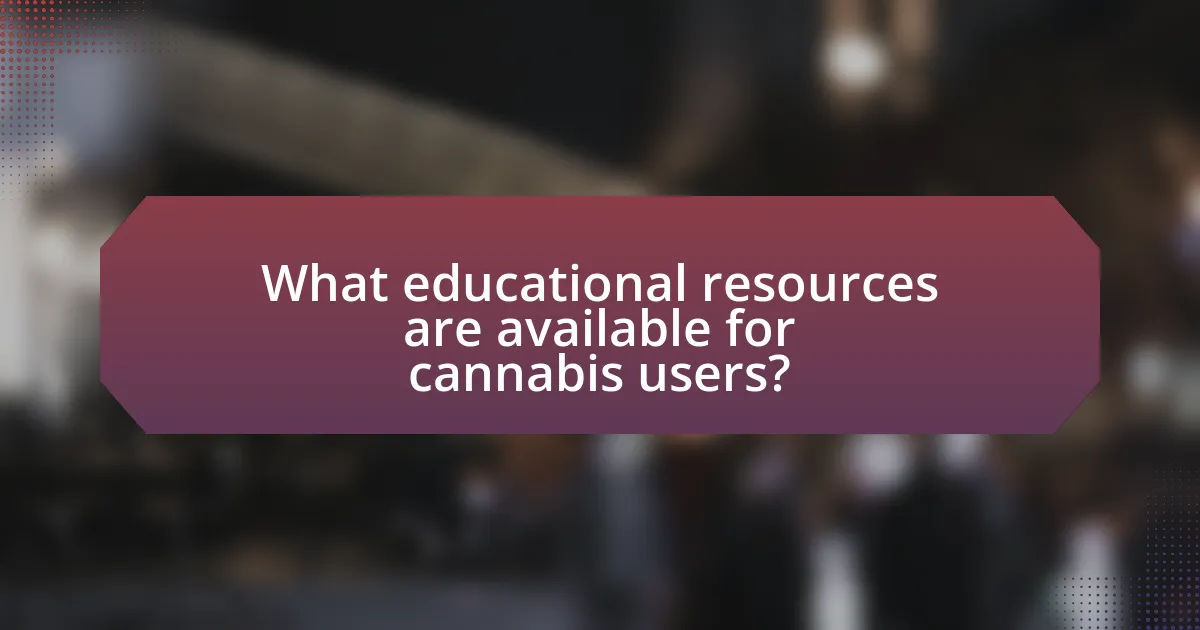
What educational resources are available for cannabis users?
Educational resources available for cannabis users include online platforms, community workshops, and educational institutions offering courses on cannabis cultivation, usage, and legal regulations. Websites like Leafly and NORML provide comprehensive guides and articles on cannabis strains, effects, and legal status across different states. Additionally, local community centers often host workshops that educate users on responsible consumption and the legal landscape. Universities such as the University of California and Colorado State University offer formal courses and research opportunities focused on cannabis studies, emphasizing the importance of understanding both the medicinal and legal aspects of cannabis use.
How can cannabis users access reliable information?
Cannabis users can access reliable information through reputable sources such as government health websites, academic research publications, and established cannabis organizations. Government health websites, like the Centers for Disease Control and Prevention (CDC) and the National Institute on Drug Abuse (NIDA), provide evidence-based information on cannabis effects, legal status, and health implications. Academic research publications, accessible via platforms like PubMed, offer peer-reviewed studies that explore various aspects of cannabis use, including its medicinal benefits and risks. Additionally, organizations such as the American Cannabis Nurses Association and the Cannabis Consumer Coalition provide educational resources and guidelines for safe usage. These sources are validated by their adherence to scientific research and regulatory standards, ensuring that the information is accurate and trustworthy.
What online platforms provide educational content about cannabis laws?
Online platforms that provide educational content about cannabis laws include Leafly, NORML (National Organization for the Reform of Marijuana Laws), and Cannabis Training University. Leafly offers comprehensive guides and articles on cannabis legislation across various states, while NORML focuses on advocacy and legal updates regarding cannabis reform. Cannabis Training University provides courses that cover cannabis laws and regulations, ensuring users are informed about legal compliance. These platforms are recognized for their reliable and up-to-date information on cannabis legislation.
How can community organizations assist cannabis users in understanding legalities?
Community organizations can assist cannabis users in understanding legalities by providing educational resources, legal workshops, and access to legal experts. These organizations often host informational sessions that cover local laws, regulations, and rights related to cannabis use, ensuring users are informed about compliance and legal protections. For instance, organizations like the National Organization for the Reform of Marijuana Laws (NORML) offer guides and resources that detail state-specific cannabis laws, helping users navigate the complexities of legality in their area. Additionally, community organizations may collaborate with legal professionals to offer free or low-cost consultations, further empowering users with accurate legal knowledge.
What role do legal professionals play in cannabis education?
Legal professionals play a crucial role in cannabis education by providing accurate information about the legal framework surrounding cannabis use, cultivation, and distribution. They help individuals and businesses understand the complexities of cannabis laws, which vary significantly by jurisdiction. For instance, legal professionals often conduct workshops and seminars to educate the public on compliance with state and federal regulations, thereby reducing the risk of legal issues. Their expertise is essential in clarifying the implications of legislation such as the Controlled Substances Act and state-specific cannabis laws, ensuring that users are informed about their rights and responsibilities.
How can cannabis users find legal advice tailored to their needs?
Cannabis users can find legal advice tailored to their needs by consulting specialized attorneys who focus on cannabis law. These legal professionals are knowledgeable about the specific regulations and laws governing cannabis use, distribution, and cultivation in various jurisdictions. Many state bar associations provide directories of attorneys with expertise in cannabis law, and users can also seek recommendations from local cannabis advocacy groups or online forums dedicated to cannabis issues. Additionally, resources such as the National Organization for the Reform of Marijuana Laws (NORML) offer guidance and referrals to legal experts in the field, ensuring that users receive accurate and relevant legal support.
What are the benefits of consulting with a cannabis lawyer?
Consulting with a cannabis lawyer provides essential legal guidance tailored to the complexities of cannabis laws. Cannabis lawyers possess specialized knowledge of state and federal regulations, ensuring compliance and minimizing legal risks for individuals and businesses involved in the cannabis industry. Their expertise can help navigate issues such as licensing, zoning, and regulatory compliance, which are critical for operating legally. Additionally, cannabis lawyers can assist in contract negotiations and dispute resolutions, protecting clients’ interests in a rapidly evolving legal landscape. Their understanding of the legal framework surrounding cannabis can significantly reduce the likelihood of costly legal mistakes.
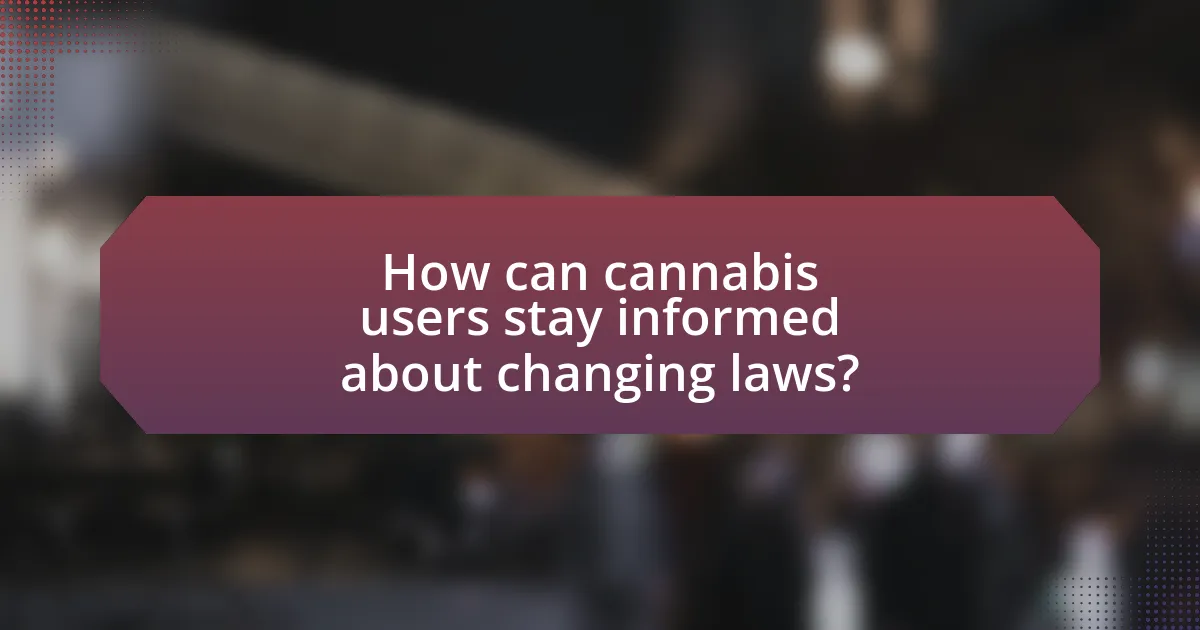
How can cannabis users stay informed about changing laws?
Cannabis users can stay informed about changing laws by regularly checking official government websites and reputable news sources. Government websites, such as state or local health departments, provide the most accurate and up-to-date information regarding cannabis legislation. Additionally, organizations like the National Organization for the Reform of Marijuana Laws (NORML) and the Marijuana Policy Project (MPP) offer resources and updates on legal changes. Subscribing to newsletters from these organizations or following them on social media can also ensure timely updates. Furthermore, attending community meetings or forums focused on cannabis legislation can provide insights and facilitate discussions about local laws.
What resources help cannabis users track legal updates?
Cannabis users can track legal updates through resources such as state government websites, cannabis advocacy organizations, and legal news platforms. State government websites provide official information on cannabis laws and regulations, ensuring users have access to the most current legal status in their area. Organizations like the National Organization for the Reform of Marijuana Laws (NORML) offer updates and advocacy efforts related to cannabis legislation. Additionally, legal news platforms, such as Leafly and Marijuana Business Daily, report on changes in cannabis laws and industry developments, providing users with timely information. These resources collectively ensure that cannabis users stay informed about legal changes affecting their usage and rights.
How can newsletters and alerts keep users informed about cannabis legislation?
Newsletters and alerts can keep users informed about cannabis legislation by providing timely updates on changes in laws and regulations. These communications often summarize recent legislative developments, highlight upcoming votes, and offer insights into policy implications, ensuring that users stay aware of their rights and responsibilities. For instance, organizations like the National Organization for the Reform of Marijuana Laws (NORML) regularly distribute newsletters that detail state-specific legislative changes, enabling users to understand how new laws may affect them directly. This proactive dissemination of information is crucial in a rapidly evolving legal landscape, where cannabis laws can vary significantly by jurisdiction and change frequently.
What role do social media and online forums play in cannabis law discussions?
Social media and online forums serve as critical platforms for cannabis law discussions by facilitating real-time communication and information sharing among users, advocates, and policymakers. These digital spaces allow individuals to exchange experiences, insights, and legal updates, thereby enhancing public awareness and understanding of evolving cannabis regulations. For instance, platforms like Reddit and Facebook host dedicated groups where members discuss local laws, share personal anecdotes, and provide legal advice, contributing to a more informed community. Additionally, social media campaigns can mobilize public opinion and influence legislative changes, as seen in various states where grassroots movements have successfully advocated for cannabis reform through viral online initiatives.
What best practices should cannabis users follow to remain compliant?
Cannabis users should adhere to local laws and regulations regarding possession, use, and distribution to remain compliant. This includes understanding the legal age for consumption, limits on possession amounts, and designated consumption areas. For instance, in states where cannabis is legal, users must be aware of the specific quantities they can possess, which often ranges from one ounce to several ounces, depending on the jurisdiction. Additionally, users should avoid consuming cannabis in public spaces where it is prohibited, as this can lead to legal penalties. Compliance also involves keeping cannabis products in their original packaging, which often includes important information such as dosage and warnings, ensuring that users are informed about what they are consuming.
How can users educate themselves on local cannabis regulations?
Users can educate themselves on local cannabis regulations by accessing official government websites and local regulatory agencies that provide up-to-date information on laws and policies. These resources often include detailed guidelines on possession limits, usage restrictions, and licensing requirements. For example, many states have dedicated cannabis regulatory boards that publish comprehensive resources, including FAQs and legal documents, which help users understand their rights and responsibilities. Additionally, community organizations and advocacy groups often offer workshops and informational sessions that cover local cannabis laws, further enhancing users’ knowledge.
What tips can help cannabis users navigate legal complexities effectively?
Cannabis users can effectively navigate legal complexities by staying informed about local laws and regulations regarding cannabis use, possession, and distribution. Understanding the specific legal framework in their jurisdiction, including any changes in legislation, is crucial. For instance, in the United States, cannabis laws vary significantly by state; some states have legalized recreational use, while others only allow medical use or have strict prohibitions. Users should also consult reliable resources such as government websites, legal aid organizations, and cannabis advocacy groups to obtain accurate information. Engaging with local cannabis communities can provide insights and shared experiences that further clarify legal nuances.
